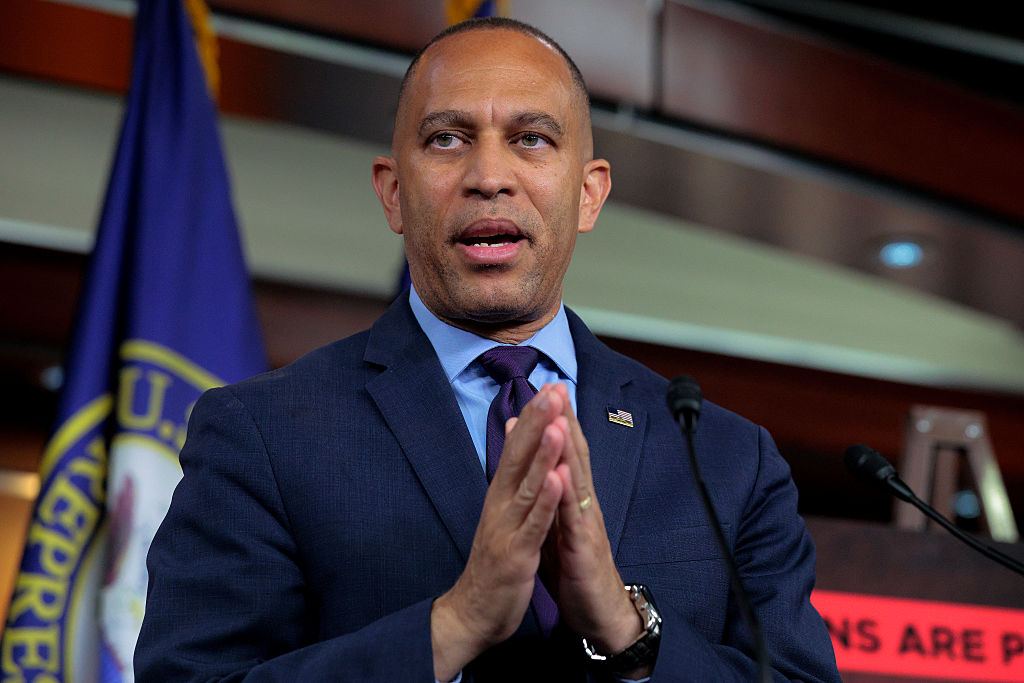
Political Debate Over Healthcare Funding During Government Shutdown
As the U.S. government faces a potential shutdown, political leaders from both parties are locked in a heated debate over healthcare funding and the extension of tax credits under the Affordable Care Act (ACA). House Minority Leader Hakeem Jeffries (D-NY) and Senate Minority Leader Chuck Schumer (D-NY) have taken a firm stance in support of extending these benefits, even as they face strong opposition from Republican figures such as Vice President JD Vance and House Speaker Mike Johnson (R-LA).
Jeffries and Schumer argue that their proposals do not change existing federal laws that prohibit taxpayer-funded healthcare for undocumented immigrants. They emphasize that current legislation already bars the use of public funds to provide medical coverage to individuals who are not legally residing in the country. This point has become central to the ongoing discussion, with Democrats insisting that their plans remain consistent with existing legal frameworks.
House Speaker Mike Johnson has been vocal in his criticism, stating that it is illegal for undocumented individuals to receive healthcare funded by American taxpayers. He claimed that the Democratic proposals aim to alter this law, adding that it is one of the main demands made by Senator Chuck Schumer to keep the government operating. Johnson's comments reflect a broader Republican concern that the proposed measures could lead to increased access to healthcare for those without legal status.
In response, Jeffries denied these allegations, asserting that there is no provision in the Democratic proposals that would change the law regarding healthcare for undocumented individuals. He reiterated that federal law currently prohibits the use of taxpayer dollars for such purposes and that the Democrats’ plans do not seek to modify this rule.
CNN’s Jake Tapper raised questions about specific elements of the Democratic proposals during an interview with Jeffries, particularly focusing on emergency Medicaid funding. Tapper noted that Republicans have frequently highlighted this aspect of the plan. However, Jeffries quickly dismissed the claims, calling them false. The exchange underscored the growing tension between the two parties over the implications of the proposed healthcare measures.
Republicans have consistently argued that the Democratic initiatives would extend healthcare benefits to undocumented immigrants, which they view as a significant risk. They claim that such actions could undermine the integrity of the healthcare system and place additional strain on public resources. These concerns have contributed to the ongoing stalemate in negotiations over government funding.
President Donald Trump has also weighed in on the issue, criticizing the Democratic proposals as “radical demands” that worsen the funding crisis. His comments reflect a broader sentiment among some conservative leaders who believe that the proposed measures could lead to the redirection of healthcare benefits toward individuals who are not legally entitled to them.
The debate over healthcare funding during the shutdown highlights the deep divisions between the two major political parties. While Democrats argue that their proposals are necessary to protect access to healthcare for millions of Americans, Republicans remain steadfast in their opposition, citing concerns over legal and fiscal implications. As the situation continues to unfold, the outcome of these discussions will likely have far-reaching consequences for the future of healthcare policy in the United States.

Post a Comment